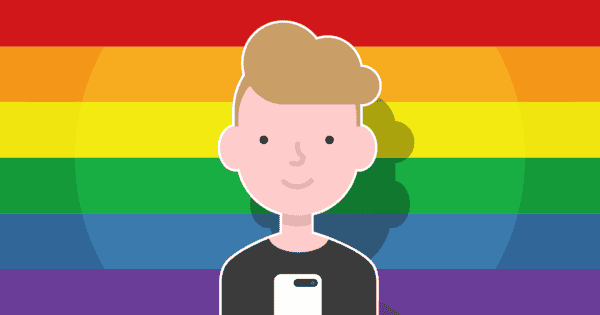We know that there are risks and challenges that go hand in hand with the benefits of existing in online spaces. These can include:
- Being exposed to dangerous, hateful, or inappropriate content online about the LGBTQ+community including anti-LGBTQ+ messaging such as hate speech, or even paid-for advertisements for things such as conversion therapy or anti-LGBTQ+ groups
- Exposure to pornography is another risk. This could be pornographic content online or shared between two specific individuals. This could stand to impact your child’s view of sex and exploring their sexuality, as well as potentially endangering themselves should they feel pressured to take part in similar activities
- Connecting with potentially dangerous individuals, including using online dating apps that may not be appropriate
- Being a victim of online sexual harassment -unwanted sexual behaviour online. Everyone is at risk of this, but for LGBTQ+ children and young people, their sexual orientation and/or gender could be the reason they are targeted
- Meeting people in person that they have only engaged with online, especially within the context of online dating, could put them in danger of sexual harassment or physical assault offline – Research from The Brook revealed that significantly more gay young people (9.9%) had met up with an online contact who was not who they said they were, compared to straight young people (4.9%)
- Being a victim of grooming and sexual exploitation -all children and young people are vulnerable to these risks including the LGBTQ+ community. Some LGBTQ+children and young people deliberately use adult sites because they think it’s an easier way to meet people, explore their sexuality, or feel accepted. Also, an adult dating app might be the only online space they know of specifically for LGBTQ+ people – if they don’t have access to an LGBTQ+ youth group or a moderated forum run by trained professionals
The threat of being exposed to dangerous or harmful hate speech online increases exponentially for transgender people, with 1.5 million transphobic tweets published over the course of a three and a half year period. With the threat of witnessing hate speech comes the added threat of transphobic cyberbullying (bullying based on prejudice or negative attitudes, views, or beliefs about trans people). A culture of transphobia online can mean some people feel emboldened to harass, bully or discriminate against trans people, so young trans people might be especially at risk of transphobic cyberbullying. This can potentially have harmful effects on mental wellbeing and self-image.
It is important to be aware that:
- LGBTQ+ children and young people are more likely to be on the receiving end of cyberbullying due to their sexuality or gender identity. 3 in 10 LGBT young people have been bullied with comments, messages, videos, or pictures that were mean, untrue, secret, or embarrassing
- Although witnessing LGBTQ+ hate speech online was found to be eight times less likely than witnessing general conversations about sexual and gender identity, it is still relatively common
- According to Stonewall – The School Report (2017), 2 in 5 LGBT young people (40 per cent) have been the target of homophobic, biphobia and transphobic abuse online
- However, many LGBTQ+ children and young people come out online before coming out offline and may build a community with people they only know online before they are able to build a community of LGBTQ+ friends offline. Cutting them off from valuable resource could discourage them from coming out to peers and friends offline


